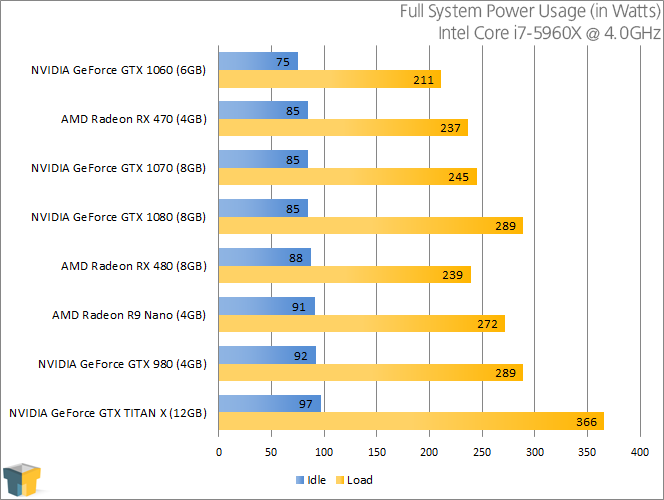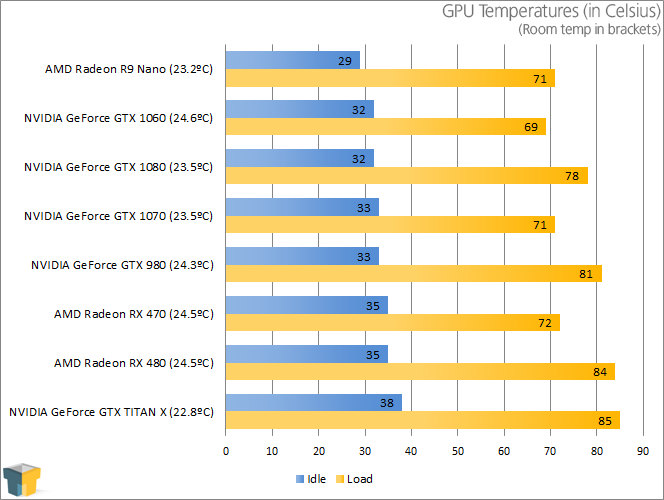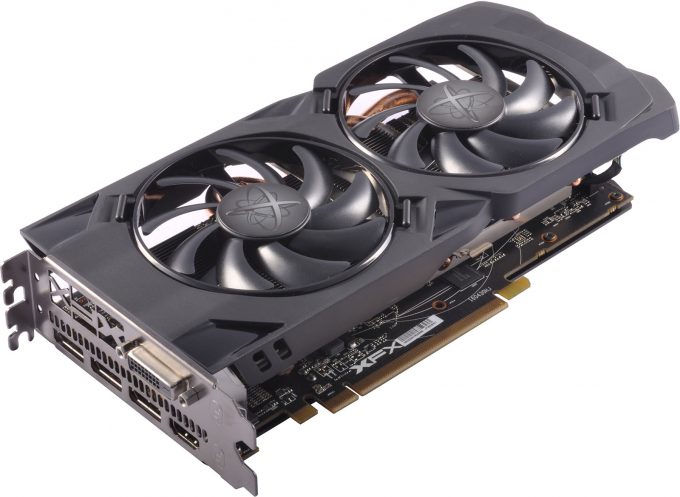- Qualcomm Launches Snapdragon 4 Gen 2 Mobile Platform
- AMD Launches Ryzen PRO 7000 Series Mobile & Desktop Platform
- Intel Launches Sleek Single-Slot Arc Pro A60 Workstation Graphics Card
- NVIDIA Announces Latest Ada Lovelace Additions: GeForce RTX 4060 Ti & RTX 4060
- Maxon Redshift With AMD Radeon GPU Rendering Support Now Available
AMD Radeon RX 470 4GB Graphics Card Review

AMD’s second Polaris graphics card has arrived, and it comes to us in the form of the Radeon RX 470. As its name implies, AMD’s latest model slots in just under the RX 480 – really close. The SRP difference between these two cards is a mere $20, so let’s dive in and see what you can expect from either one.
Page 7 – Power, Temperatures & Final Thoughts
To test graphics cards for both their power consumption and temperature at load, I utilize a couple of different tools. On the hardware side, I rely on a Kill-a-Watt power monitor, which the PC plugs into directly. For software, I use GPU-Z to monitor the core temperature, and 3DMark’s Fire Strike 4K test to push the GPU hard.
To test, the floor area behind the (shut down) PC is tested with a temperature gun, with the average temperature recorded as the room temperature. Once that’s established, the PC is turned on and left to sit idle for ten minutes. It’s at this point when the idle wattage is noted, and 3DMark is run. It’s during the ‘Graphics Test 2’ that the max load wattage is recorded.


Compared to the reference RX 480, XFX’s RX 470 used just 2W less at load. I believe the small difference is due to the fact that the fans are run at a faster speed, so as to avoid the temperature coming anywhere near 80°C. In that test, the card topped-out at 72°C, becoming one of the coolest-running cards in the lot. It did come at a cost, though.
XFX’s RX 470 is the loudest GPU I’ve tested in a while. I normally don’t even make it a point to focus on noise that much, because it’s rare when I notice a difference between one card to the next over the other ambient noise in our test PC. However, this RX 470 stood out to the point where I stopped the fans while they were running to make absolute sure that it was actually the card that was causing the increased noise.
This isn’t a major issue since people can use software to reduce the card’s fan and thus let the card hit 80°C, but it’s an odd design choice nonetheless. There’s nothing wrong with these cards hitting 80°C, so I am not sure why XFX chose to reduce the temperature slightly at the expense of a much louder card. I should stress that the card is not loud, but it’s definitely noticeable when running versus every other card I’ve recently tested.
Final Thoughts
This is one of the easiest GPU reviews to write a conclusion for, because let’s face it: nothing about this card comes to us as a surprise. AMD talked about the card long ago, and its specs have been leaked to the Web for a while. That doesn’t make the card boring; the launch just left nothing to be surprised about.
In fact, oddness replaces surprise for this launch. With a $200 offering in AMD’s lineup, it’s a bit strange for the company to release a SKU that’s a mere $20 cheaper. As seen in our benchmark results, the card’s performance scales with its pricing for the most part, but that doesn’t make it any less of an odd addition.
We can look at things a different way: it’s no secret that the 4GB RX 480 has been scarce – even more so than the 8GB version. If we ignore the 4GB RX 480, then the price delta becomes much greater – $180 vs. $240. In that particular matchup, the RX 470 looks like an incredible value; it’s not that much slower than the 8GB RX 480, but it’s far cheaper. At least on paper.
As usual, everything boils down to pricing here. Despite the RX 470 being pegged at a $180 SRP, the market is already selling it for more. At Newegg, cards are being sold with at least a $20 premium, putting them on par with the 4GB RX 480. This XFX model is $220 as of the time of writing – a $40 premium.
Isn’t it insane that it can pretty much be expected that any new GPU nowadays is going to cost a lot more than the SRP? And, as we can see from the GPUs that have launched over the last few months, that higher pricing doesn’t drop down towards SRP too quickly.
Anyway, it is what it is. Our performance results can tell you whether or not you want the RX 470, RX 480, or another card. Your wallet will decide the rest.
Support our efforts! With ad revenue at an all-time low for written websites, we're relying more than ever on reader support to help us continue putting so much effort into this type of content. You can support us by becoming a Patron, or by using our Amazon shopping affiliate links listed through our articles. Thanks for your support!






